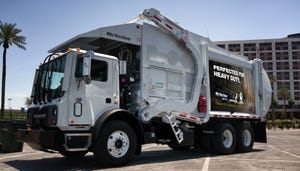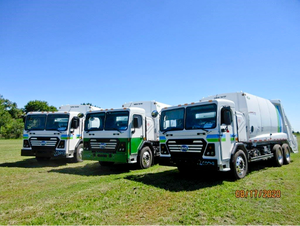FINANCE: IRS Allows Some Hazwaste Cleanups To Be Deductible
April 1, 1995
Carol Conjura
Manufacturers can deduct as business expenses cleanup costs for contaminated soil and groundwater, according to a recent Inter-nal Revenue Service (IRS) ruling (Rev. Rul. 94-38, 1994-25 IRB). Although the principles in the ruling appear to be broad enough to apply to several other hazardous waste removal activities, so far the IRS has taken a narrow interpretation.
The Internal Revenue Service allows the expenses to be capitalized, or to be included in the taxpayer's business accounts as assets, if the expenditures prolong the useful life of the property; if they adapt the property to a different use; or if they increase the value of the property.
Using these three tests, the IRS has concluded that soil remediation and groundwater treatment costs do not permanently improve the taxpayer's land or significantly benefit its future enough to require capitalization. However, the IRS has had trouble applying the third test (increased property value) because remediating soil and groundwater contamination can result in certain intangible benefits, such as improving public health and safety and reducing the risk of exposure to liability.
In general, the IRS does not consider improved health and safety, decreased chance of lawsuits or the ability to continue business to be future benefits which render the expenditures capital in nature. In addition, the Internal Revenue Service no longer defines "in-creased value" by comparing the pre- and post-remediation values. This approach could lead to deductibility in many instances. However, broad as the rationale is, its application to other areas of waste cleanup is still uncertain.
Soil cleanup and groundwater remediation costs generally are deductible if the taxpayer's expenditures do not relate to a depreciable asset; if the property was not contaminated when the taxpayer originally purchased it; and if the taxpayer did not incur the cleanup costs while converting the property to a new or different use.
Ownership is an important issue in this ruling, especially in Superfund cleanup, where liability is often im-posed on the property's previous owners (and, in some cases, on other parties such as a lender). The IRS does not always allow taxpayers to deduct environmental remediation expenditures just because the taxpayer is not the property's present owner. In fact, capitalization may be required if the expenditures are for physical improvements. For example, if a taxpayer must reimburse a government authority or a third party for constructing a groundwater treatment facility that benefits the taxpayer's property, capitalization may be re-quired. This is true even if the taxpayer does not own the property that is being treated. In many cases, the IRS allows a taxpayer's liability for Superfund cleanup to be deducted because the expenditures do not benefit the taxpayer.
The IRS is studying the extent to which the costs of environmentally-related construction and demolition activities should be capitalized. For example, Rev. Rul. 94-38 does not apply to asbestos or lead removal activities. Furthermore, the IRS currently does not allow deductions for demolishing or replacing structures, such as monitoring wells, as part of the remediation process, or for property that the taxpayer acquired in a contaminated state with an assumed liability. Taxpay-ers who clean up property that was contaminated when they purchased it cannot use the ruling for a de-duction if they knew the property was a contingent liability. As the purchaser, the taxpayer already should have received a discount for purchasing the assets with the assumed liability. The weight of case law would support capitalizing the expenditures as an adjustment to the property's purchase price at the time and to the extent the cleanup occurs.
Based on Rev. Rul. 94-38, the IRS will not challenge deductions for many types of environmental remediation costs.
You May Also Like


